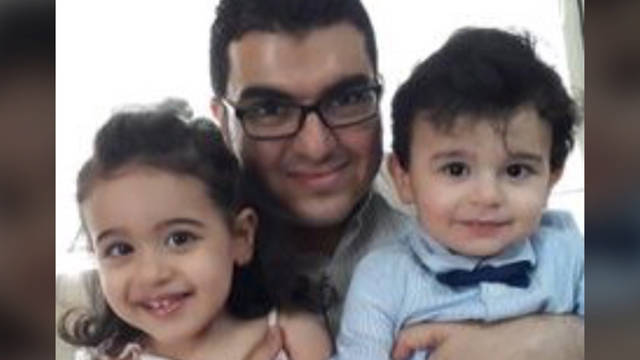
By Amy Goodman & Denis Moynihan
Em Berry recently published a poem, “Because of Us,” that reads,
This morning I learned
The English word gauze
(finely woven medical cloth)
Comes from the Arabic word […] Ghazza
Because Gazans have been skilled weavers for centuries
I wondered then
how many of our wounds
have been dressed
because of them
and how many of theirs
have been left open
because of us
Berry’s poem is painfully timely, as the Israeli military, after weeks of bombing civilian targets (including schools, hospitals and ambulances) has expanded its ground invasion, attacking hospitals directly with tanks and troops.
According to the World Health Organization (WHO), 26 of Gaza’s 36 hospitals are non-functional, denied electricity, fuel, supplies and damaged by Israel’s assault. Inoperable incubators, respirators, and dialysis machines have left patients to die. Staff trapped at Al-Shifa, Gaza’s largest hospital, dug a mass grave to bury over 180 dead patients.
Israel has also killed an estimated 200 medical workers. Among them, Dr. Hammam Alloh, a 36-year-old internist and nephrologist at Al-Shifa, killed along with his father, father-in-law and brother-in-law on Saturday, November 11th, when Israel shelled his home. He is survived by his wife and two young children.
Dr. Alloh spoke on the Democracy Now! news hour on October 31st, two weeks before his death:
“The few trucks that were allowed in with aid to Gazan people is almost nothing compared to what we need,” Dr. Alloh said. “Water, gloves and gauze, this is not what we are looking for. We are looking for devices, medications… for providing real healthcare for people in need.”
Days earlier, Dr. Alloh made an excruciating decision, ordering his staff to stop resuscitating an older patient, as the hospital lacked a working ventilator for her, so, even if successfully resuscitated, the patient would still die. He instructed the doctors and nurses to triage care, saving those with a chance of survival.
Despite Israel’s constant bombardment and approaching ground invasion, Dr. Alloh refused to leave:
“If I go, who treats my patients? We are not animals. We have the right to receive proper health care. So we can’t just leave,” he said. “You think I went to medical school and for my postgraduate degrees for a total of 14 years so I think only about my life and not my patients?…This is not the reason why I became a doctor.”
That brave decision cost Dr. Hammam Alloh his life. A family member wrote Democracy Now!, saying his body remains buried under rubble. Al-Shifa, meanwhile, has become a war zone.
“If I should choose today between hell and Al-Shifa, I would choose hell,” Dr. Mads Gilbert, a Norwegian physician with decades of experience in Gaza, said on Democracy Now! He tried repeatedly to get into Gaza in recent weeks, to get to Al-Shifa, without success. “Twenty out of the 23 ICU patients had died. Seventeen other patients died because of lack of supplies, oxygen and water. And three, if not five, of the 38 premature newborns have died because of this slow suffocation that the Israeli occupation army is exposing all the hospitals to…I’m out of words to describe this systematic, man-made slaughtering of patients in civilian hospitals.”
While words may fail Dr. Mads Gilbert, those of the late Dr. Hammam Alloh on Democracy Now! offer a posthumous call to action:
“We need this war to end, because we are real humans. We are not animals. We have the right to live freely…we are being exterminated. We are being mass[ive]ly eradicated. You pretend to care for humanitarian and human rights, which is not what we are living now. To prove us wrong, please do something.”
At least 1.6 million Palestinians have been displaced by Israel’s war on Gaza, out of the enclave’s population of 2.3 million. Earlier this week, Israel dropped leaflets on the southern Gaza city of Khan Younis, warning residents to flee – many for the second time, after fleeing northern Gaza.
The United Nations Security Council passed its first resolution Wednesday, after four previous, failed attempts, calling for extended humanitarian pauses in Gaza, with the United States abstaining.
The late Palestinian poet Mahmoud Darwish, as a child, survived the 1948 Nakba, Arabic for “catastrophe,” when 750,000 Palestinians were driven from their homes and 15,000 were killed during Israel’s founding. Darwish lived much of his life in exile and was a critic of Hamas. He wrote in his poem, “To A Young Poet,”
“A poem in a difficult time
is beautiful flowers in a cemetery.”
As the WHO warns Gaza’s hospitals are becoming cemeteries, it’s time to heed the poets and the doctors, stop the killing, end the occupation, and dress the open wounds of war.












Media Options